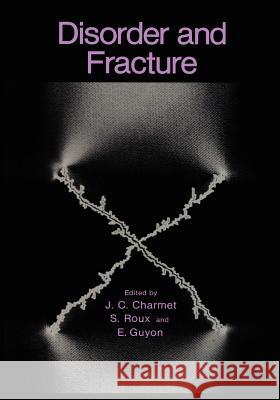Disorder and Fracture » książka
Disorder and Fracture
ISBN-13: 9780306435768 / Angielski / Miękka / 1991 / 316 str.
Fracture, and particularly brittle fracture, is a good example of an instability. For a homogeneous solid, subjected to a uniform stress field, a crack may appear anywhere in the structure once the threshold stress is reached. However, once a crack has been nucleated in some place, further damage in the solid will in most cases propagate from the initial crack, and not somewhere else in the solid. In this sense fracture is an unstable process. This property makes the process extremely sensitive to any heterogeneity present in the medium, which selects the location of the first crack nucleated. In particular, fracture appears to be very sensitive to disorder, which can favor or impede local cracks. Therefore, in most realistic cases, a good description of fracture mechanics should include the effect of disorder. Recently this need has motivated work in this direction starting from the usual description of fracture mechanics. Parallel with this first trend, statistical physics underwent a very important development in the description of disordered systems. In particular, let us mention the emergence of some "new" concepts (such as fractals, scaling laws, finite size effects, and so on) in this field. However, many models considered were rather simple and well adapted to theoretical or numerical introduction into a complex body of problems. An example of this can be found in percolation theory. This area is now rather well understood and accurately described.











